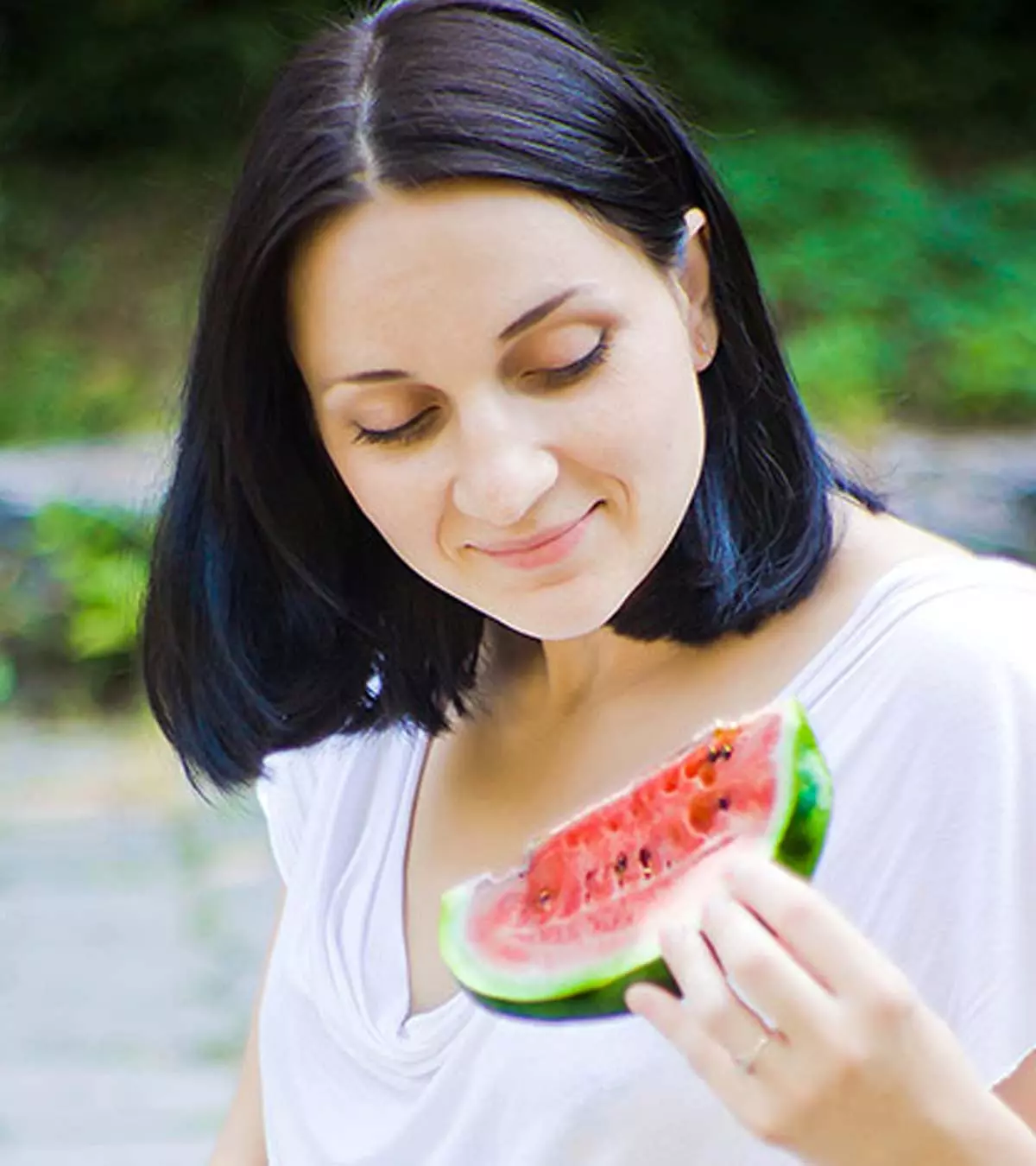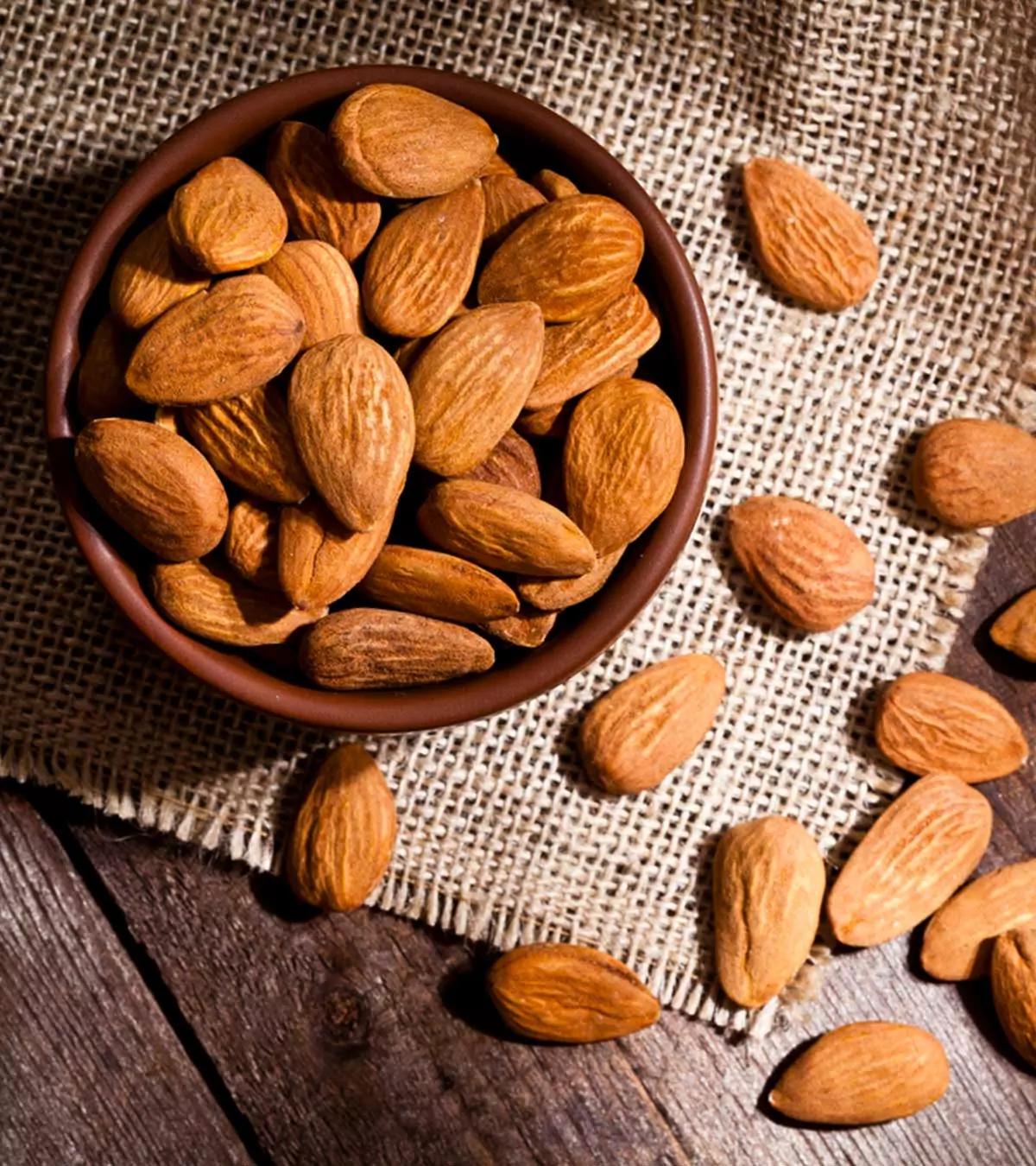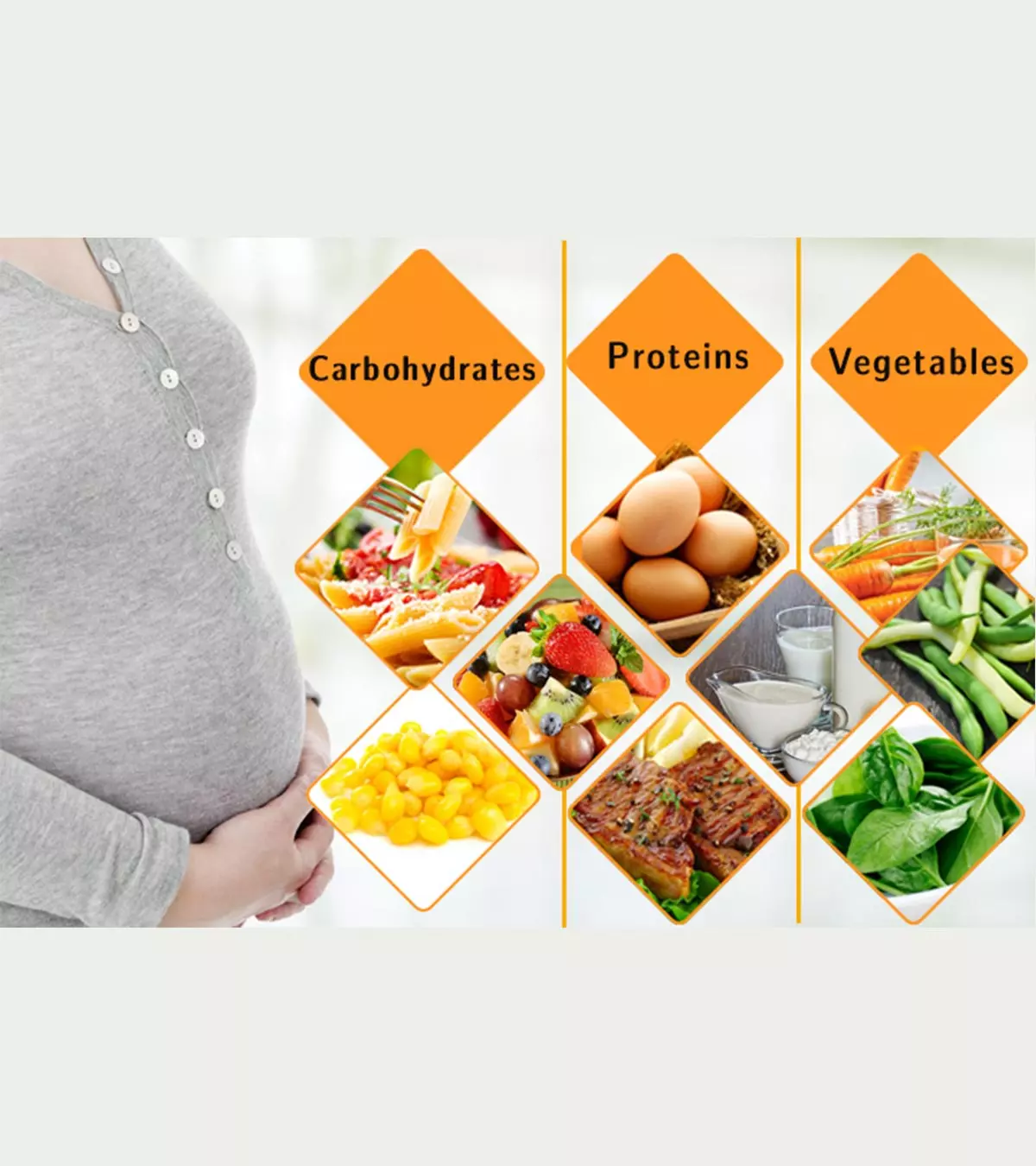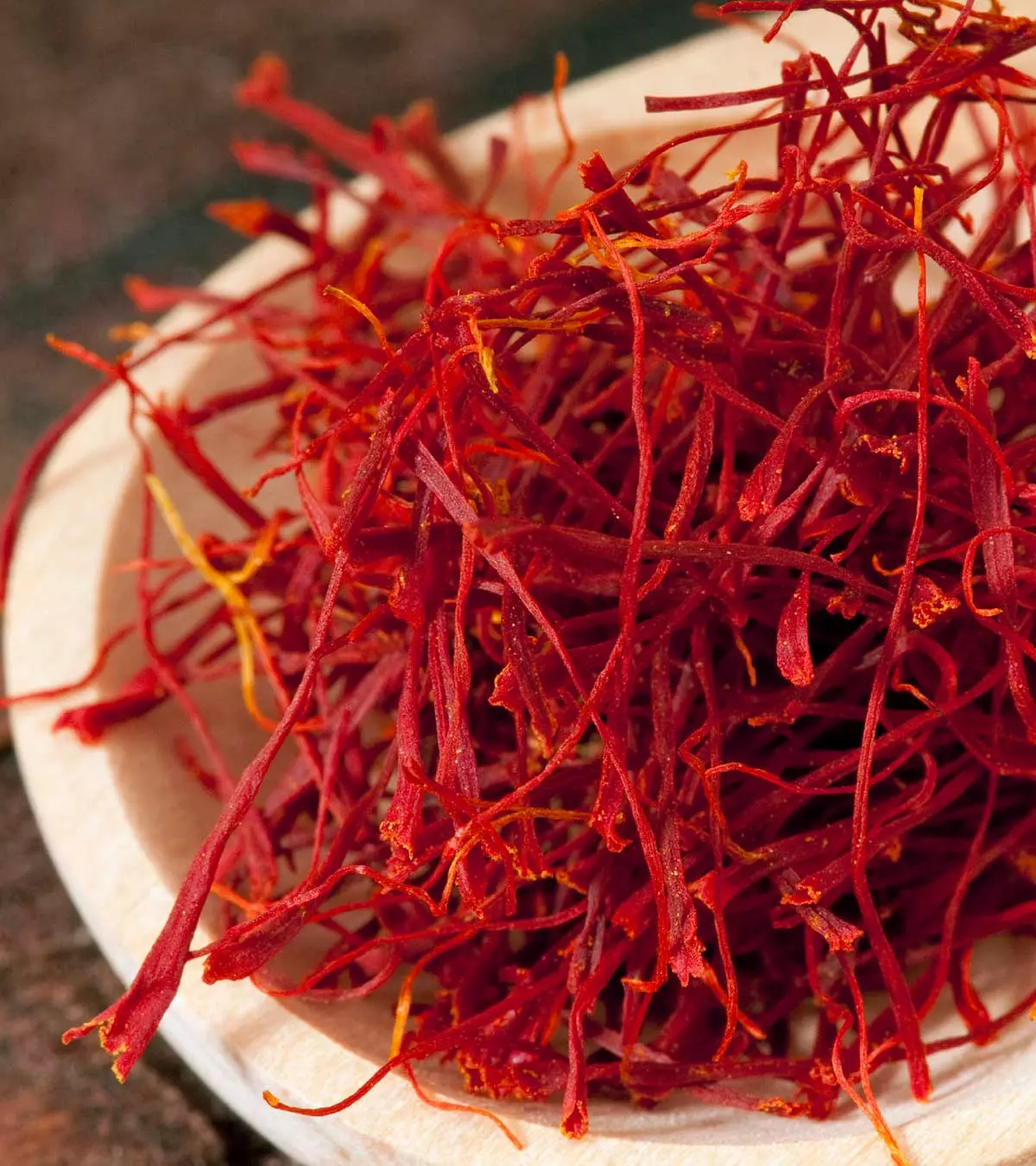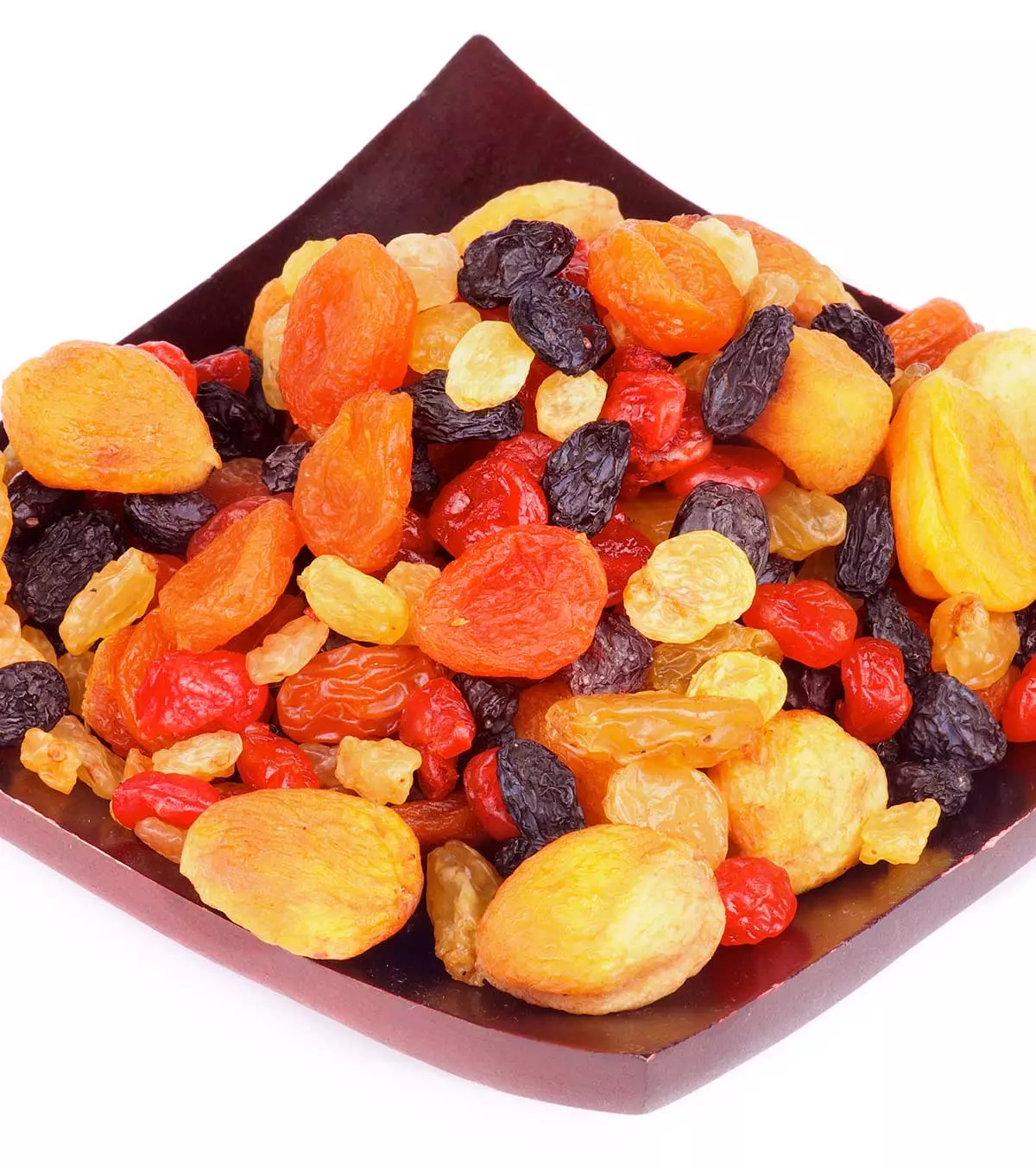
Image: Shutterstock
A baby’s diet plays a crucial role in their brain development. Therefore, it is interesting to learn about the types of food that are considered brain food for babies.
A baby’s crucial brain development continues till they reach three years. At this age, they start reacting to their surroundings, thinking, learning, and solving problems. Exposure to activities such as sports, music, and exploring their surroundings may aid their gray matter functions. In addition, the brain cells require nutrition to mature optimally. Foods rich in vitamins, minerals, proteins, and healthy fats support neuronal growth and help maintain healthy brain cells (1).
Australia-based dietician Skye Swaney opines, “All vitamins are important for healthy development in children, but adequate intake of vitamins A, B6, B9 (folate), B12, and D are crucial for brain development. In most cases, children should be able to get the vitamins they need from a balanced diet, rather than needing supplements.”
Continue reading to learn more about food substances that can boost brain development in children and provide them with nourishment to help them become smart and intelligent.
Key Pointers
- Vegetables such as sweet potatoes, pumpkins, carrots, and leafy greens contain antioxidants and support brain health.
- Fruits such as avocados and berries promote brain health and prevent oxidative cell damage.
- Omega-3 fatty acids in fish such as salmon, tuna, and mackerel enhance brain growth and function.
- Eggs contain choline which helps to improve memory and concentration in babies.
- Nuts such as walnuts and almonds contain vitamin E and zinc, which prevent cognitive degeneration and enhance memory and brain development.
- Whole grains provide constant energy to the brain and contain folate, which is essential for proper brain function.
12 Best Foods To Boost Brain Development In Babies
Including a range of nutrient-rich foods in your baby’s diet can help promote healthy brain development and lay the groundwork for future learning. Here are 12 foods you can feed your child during their early childhood to help boost your child’s brain power and IQ.
1. Greek Yogurt
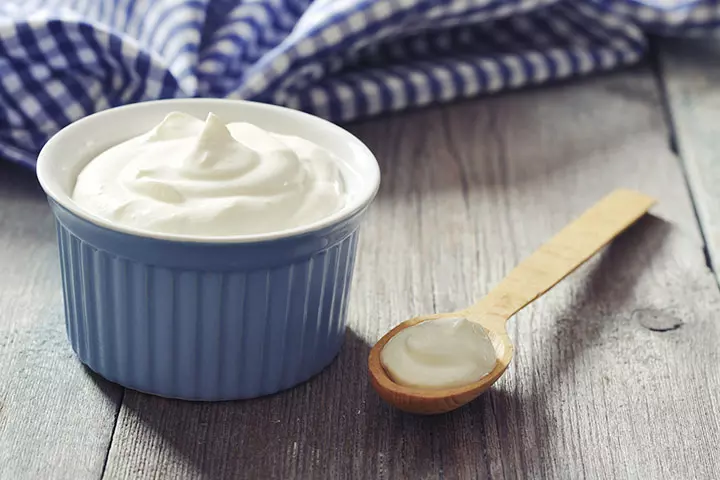
This acts like a super baby brain development food. Greek yogurt keeps the brain cell membranes flexible, it aids in the functioning of the synapses in sending and receiving information. The B complex vitamins in Greek yogurt are necessary for the growth of brain tissues and neurotransmitters (2).
 Did you know?
Did you know?2. Cucumbers
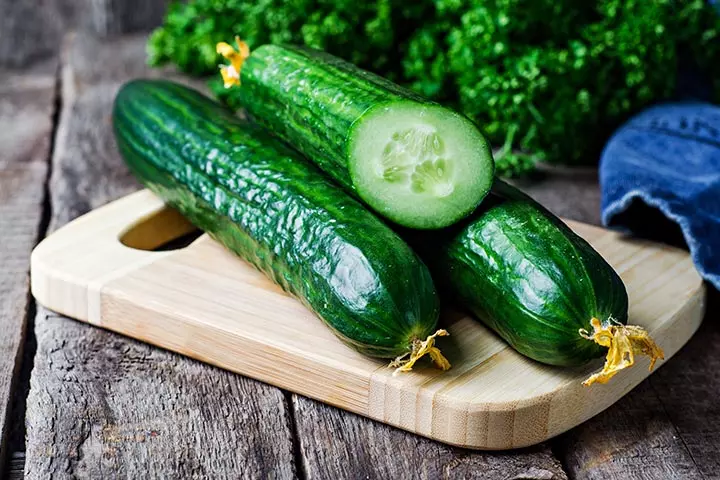
Cucumber is a fiber-rich food that contains several other nutrients and phytochemicals. Some animal studies show that flavonoids, choline, agmatine, and other polyamines in cucumber seeds may aid brain function (3) (4). Hence, adding cucumber to a baby’s well-balanced diet can be a good way to support their cognitive development.
3. Other Vegetables
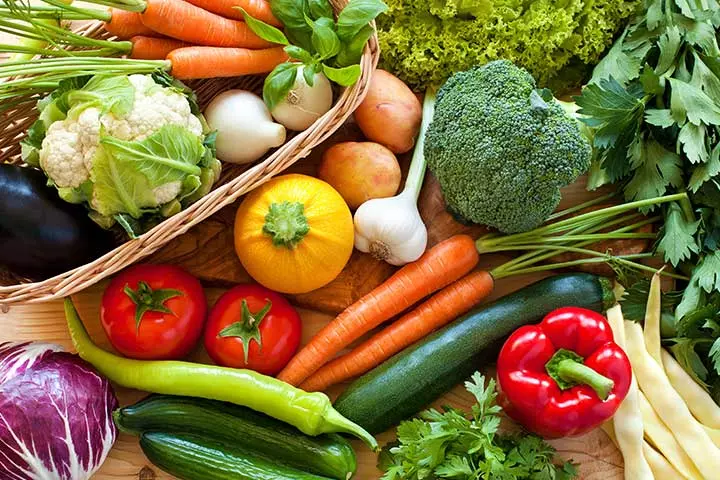
Vegetables that have rich, deep colors are excellent sources of antioxidants. Antioxidants help to keep the brain cells healthy. Some of the best vegetables for the brain are pumpkin, carrot, and sweet potato. Green leafy vegetables like kale, chard, spinach, and collard greens are rich in folate, which keeps dementia at bay. Kale contains Sulforaphane and Diindolylmethane, which aid the growth of brain cells (6).
4. Broccoli
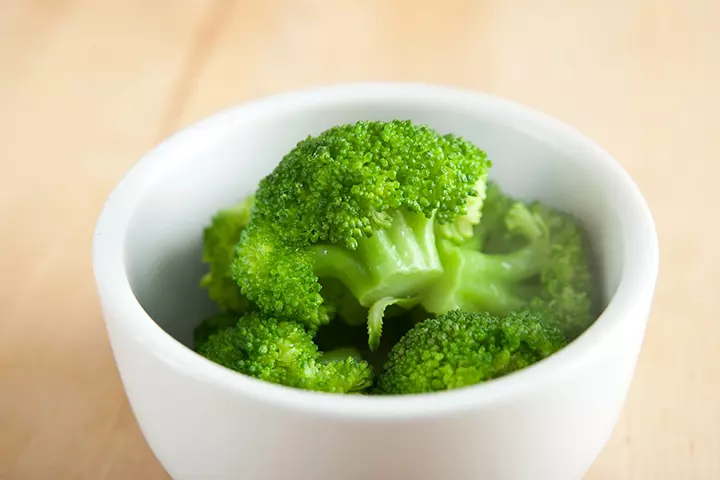
Broccoli is another superfood for your baby’s brain. It is a good source of B vitamins such as folate, riboflavin and vitamin B6 that aids neuronal development. This makes it an excellent baby brain food (5).
5. Apples
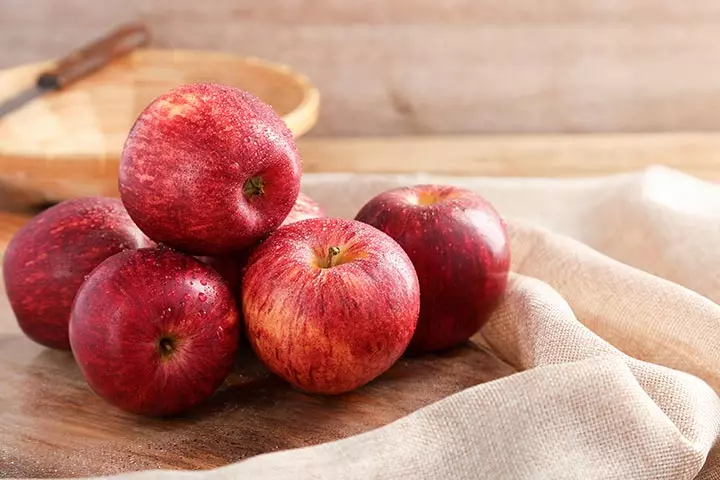
Apple intake has been shown to reduce oxidative stress in brain tissue, which is associated with decreased cognitive impairment. An animal study found that consuming apple juice concentrate for one month can positively affect brain health (7). However, further research is warranted to validate the effect of eating whole apples on promoting brain health.
6. Avocados
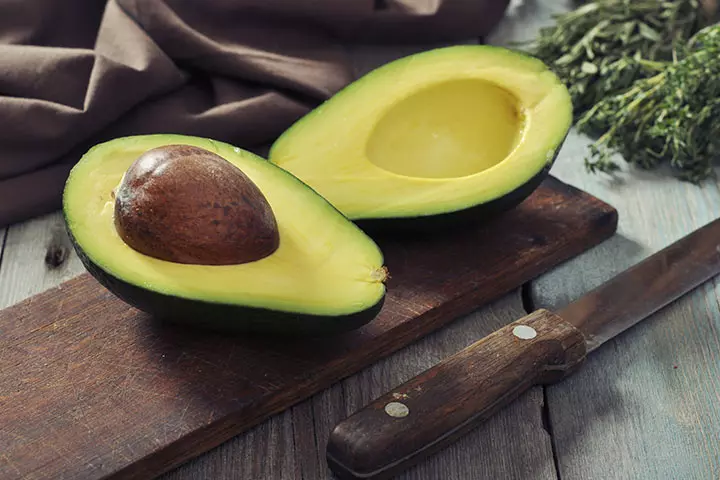
Avocados are beneficial for brain health. It is a rich source of unsaturated fats, which promote blood flow to the brain. They also contain numerous phytonutrients which have various health benefits to babies (8) (9 ).
7. Fish
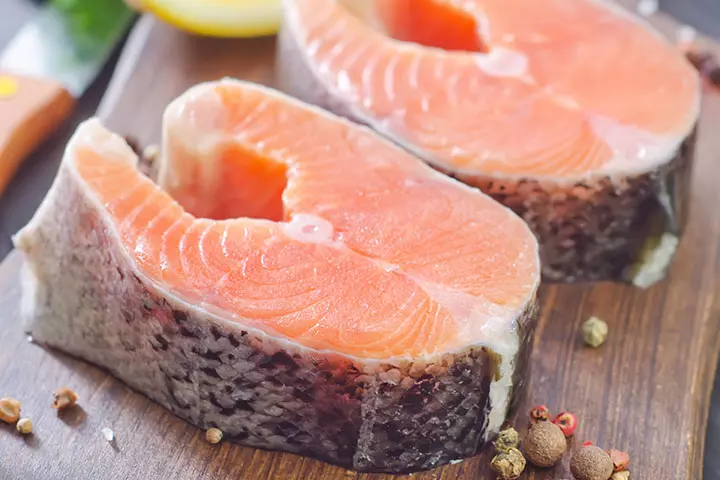
Fatty fish like salmon, tuna, and mackerel contain omega-3 fatty acids, like DHA, which provide the building blocks of brain tissue. Omega-3 fatty acids aid the growth and function of the brain in babies (10).
8. Eggs

Eggs are a nutrient-rich food that contains nutrients like omega-3 fatty acids, zinc, lutein, and choline, which increases focus and concentration in children. Choline helps produce acetylcholine or memory stem cells. Their versatility and easy digestibility make eggs for babies a great choice (11) (12).
 Quick fact
Quick fact9. Whole grains
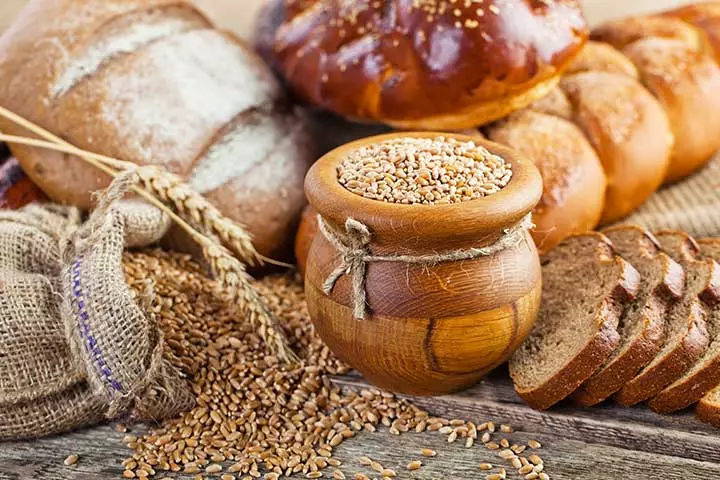
Whole grains improve concentration in babies by providing their brain a constant supply of energy. It has a low glycemic index and slowly releases glucose into the bloodstream, keeping your child alert throughout the day (13). It also contains folate, which is essential for the proper functioning of the brain (14) (15).
10. Oatmeal
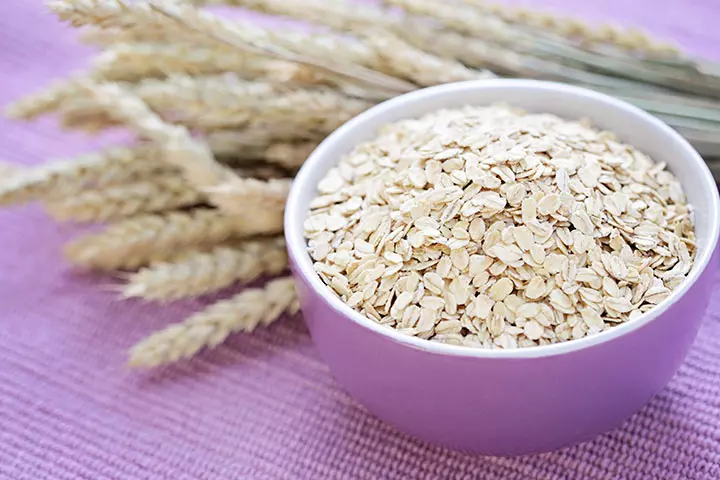
Children who eat oats for breakfast have been found to perform better in terms of attention, executive function, and memory (16). Oats are rich in vitamin E, zinc, iron, and fiber, which provide the baby with a steady stream of energy (17). Perhaps that’s why oats are considered one of the breakfast foods for babies. You can begin feeding your baby oats as soon as they begin solids.
11. Berries
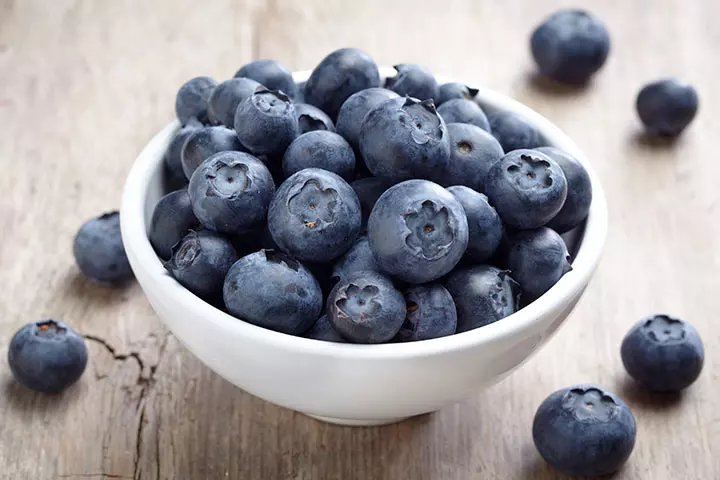
The high vitamin C content in berries improves learning and memory in kids. It also prevents oxidative stress in the brain (18).
 Did you know?
Did you know?12. Nuts
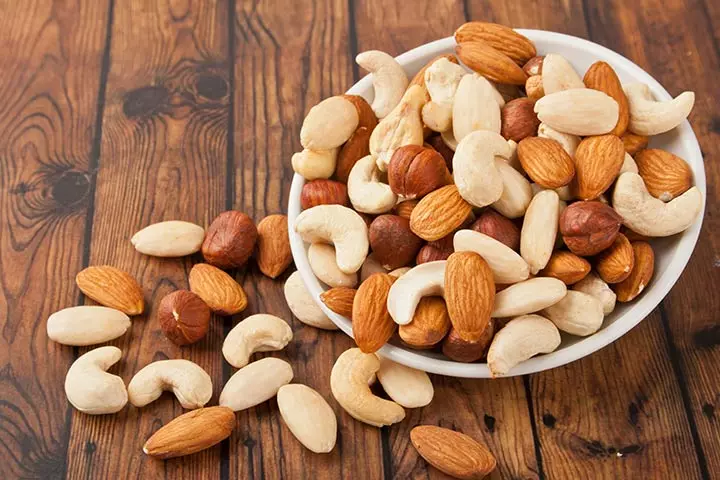
Nuts like walnuts, almonds, and peanuts are brain-friendly foods. The high levels of vitamin E in these foods prevent cognitive degeneration (19). Nuts also contain zinc, which enhances memory and brain development and may improve their problem-solving ability. However, nuts for babies and young children are a potential choking hazard. Hence, they should be added to baby foods in powdered or pureed forms.
Frequently Asked Questions
1. How often should I give my baby brain food?
Foods good for the brain can be made part of a balanced healthy diet for the baby. You may speak to a pediatric dietician for a diet plan, based on your baby’s age, which includes various foods good for the brain.
2. Are there any foods that can harm my baby’s brain development?
Foods contaminated with pathogens and those with high-mercury content, such as tuna and swordfish, can harm a baby’s brain development. Excessive mercury intake can negatively affect their developing nervous system (20).
3. How can I incorporate brain food into my baby’s diet?
You may pick a brain food for a day and include it in various food items in the baby’s diet, such as purees and mashes. You may also blend various brain food items and create a finger food platter for babies older than six months.
4. Can I give my baby brain food if they have allergies?
Consult your pediatrician before introducing new foods to your baby’s diet if they have allergies. Follow the three-day wait rule, where you do not introduce any new food to the baby to rule out allergy and food intolerance.
We have listed the above brain foods for babies because they are rich sources of protein, healthy fats, vitamins, and minerals. These nutrients form an integral part of their brains and assist in their healthy growth. Ensure your cabin and refrigerator are stocked with these food items. Try to include these ingredients into your baby’s diet daily. You may even seek the suggestion of a nutritionist to plan a diet. Since there are many items on this list, you may not have to repeat the same recipe in a week.
Infographic: Foods To Boost Your Baby’s Brain Power
As all parents, you may want to give your child every advantage in life, including healthy cognitive development. But did you know that certain foods may positively impact children’s cognitive development and brain function? This infographic will explore some of the best foods to boost your baby’s brain power; you may include them age-appropriately into your little one’s diet. Illustration: Momjunction Design Team
Illustration: Brain Food For Babies That Will Boost Brainpower
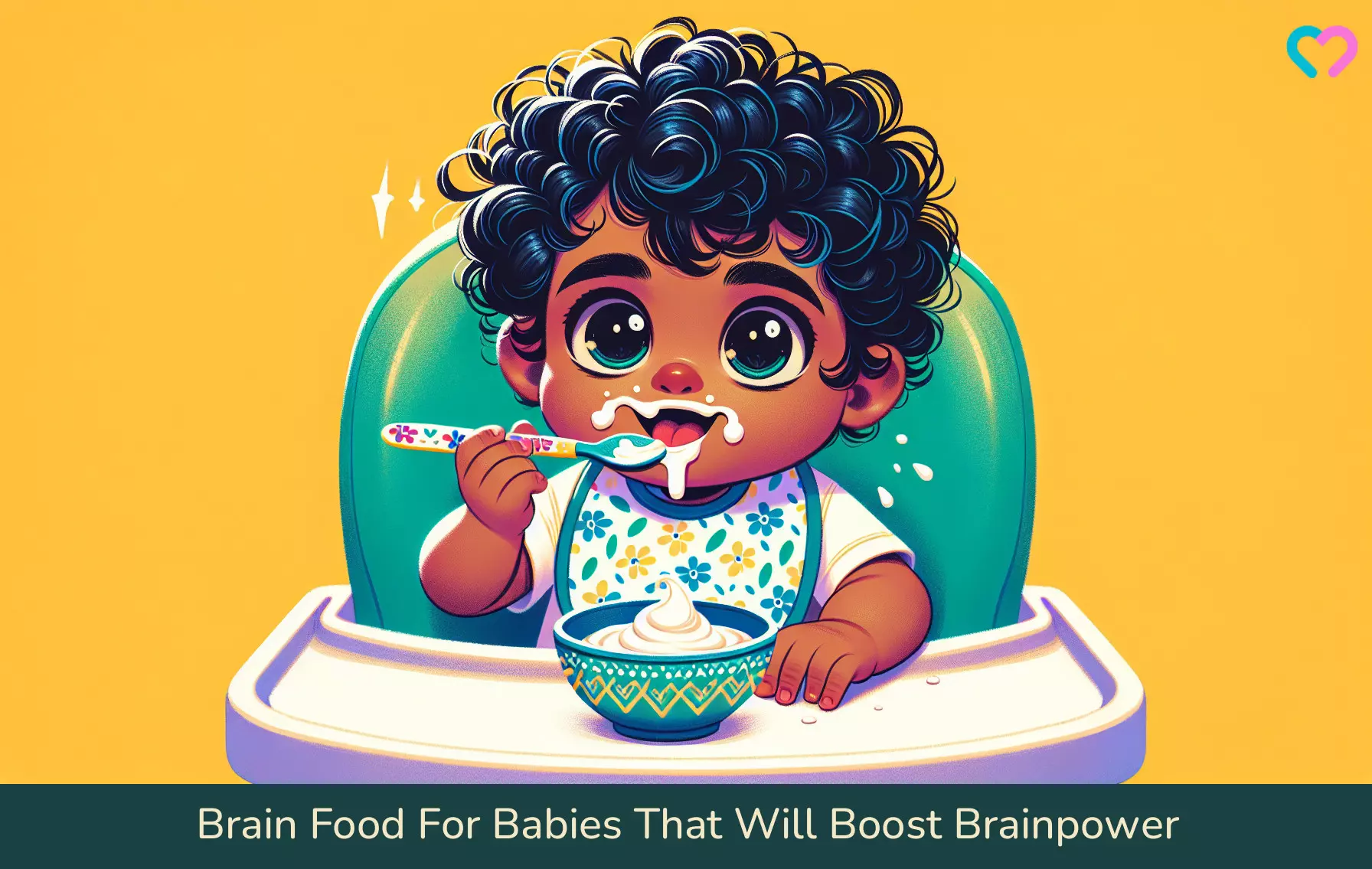
Image: Dall·E/MomJunction Design Team
References
- Fernando Gómez-Pinilla; (2008); Brain foods: the effects of nutrients on brain function.
https://www.ncbi.nlm.nih.gov/pmc/articles/PMC2805706/ - Yogurt, Greek, plain, lowfat.
https://fdc.nal.usda.gov/fdc-app.html#/food-details/170903/nutrients - Manish Kumara and Milind Parle; (2014); Pharmacological Evaluation of Cucumber for Cognition Enhancing Effect on Brain of Mice.
https://www.researchgate.net/profile/Manish-Kumar-88/publication/276042814_Pharmacological_Evaluation_of_Cucumber_for_Cognition_Enhancing_Effect_on_Brain_of_Mice/links/5aa4dfafaca272d448b927da/Pharmacological-Evaluation-of-Cucumber-for-Cognition-Enhancing-Effect-on-Brain-of-Mice.pdf - Naghma Khan et al.; (2013); Fisetin: A Dietary Antioxidant for Health Promotion.
https://www.ncbi.nlm.nih.gov/pmc/articles/PMC3689181/ - Broccoli.
https://www.hss.gov.nt.ca/en/services/nutritional-food-fact-sheet-series/broccoli# - Francisco Fuentes et al.; (2016); Dietary Glucosinolates Sulforaphane, Phenethyl Isothiocyanate, Indole-3-Carbinol/3,3′-Diindolylmethane: Anti-Oxidative Stress/Inflammation, Nrf2, Epigenetics/Epigenomics and In Vivo Cancer Chemopreventive Efficacy.
https://www.ncbi.nlm.nih.gov/pmc/articles/PMC4596548/ - Dianne A. Hyson; (2011); A Comprehensive Review of Apples and Apple Components and Their Relationship to Human Health
https://www.sciencedirect.com/science/article/pii/S2161831322009486 - Avocados: Good or Bad?
https://healthysd.gov/avocados-good-or-bad/ - The Forgotten Fruit: A Case for Consuming Avocado Within the Traditional Mediterranean Diet.
https://www.frontiersin.org/articles/10.3389/fnut.2020.00078/full#:~:text=One%20serving%20of%20avocado%20contains - Omega-3 Fatty Acids.
https://ods.od.nih.gov/factsheets/Omega3FattyAcids-Consumer/ - Sophie Réhault-Godbert et al.; (2019); The Golden Egg: Nutritional Value, Bioactivities, and Emerging Benefits for Human Health.
ttps://www.ncbi.nlm.nih.gov/pmc/articles/PMC6470839/ - Choline.
https://ods.od.nih.gov/factsheets/Choline-HealthProfessional/ - Carbohydrates and the glycaemic index.
https://www.betterhealth.vic.gov.au/health/healthyliving/carbohydrates-and-the-glycaemic-index - Wheat flour, whole-grain, soft wheat.
https://fdc.nal.usda.gov/fdc-app.html#/food-details/168944/nutrients - Folic acid, ageing, depression, and dementia.
https://www.ncbi.nlm.nih.gov/pmc/articles/PMC1123448/ - Katie Adolphus et al.; (2016); The Effects of Breakfast and Breakfast Composition on Cognition in Children and Adolescents: A Systematic Review.
ttps://www.ncbi.nlm.nih.gov/pmc/articles/PMC4863264/ - Oats (Includes foods for USDA’s Food Distribution Program)
https://fdc.nal.usda.gov/fdc-app.html#/food-details/169705/nutrients - Berries are among the healthiest foods you can eat.
http://hsph.harvard.edu/news/fresh-berries-are-among-the-healthiest-foods-you-can-eat/ - Rávila Graziany Machado de Souza et al.; (2017); Nuts and Human Health Outcomes: A Systematic Review.
https://www.ncbi.nlm.nih.gov/pmc/articles/PMC5748761/ - The Benefits of Eating Greek Yogurt; UT Medical Center
https://www.utmedicalcenter.org/blog-post/benefits-eating-greek-yogurt#:~:text=Both%20yogurts%20promote%20intestinal%20health,3%20ounces%20of%20lean%20meat. - The Benefits of Eating Greek Yogurt; UT Medical Center
https://www.utmedicalcenter.org/blog-post/benefits-eating-greek-yogurt#:~:text=Both%20yogurts%20promote%20intestinal%20health,3%20ounces%20of%20lean%20meat. - Jay R Hoffman and Michael J Falvo; (2004); Protein – Which is Best?
https://www.ncbi.nlm.nih.gov/pmc/articles/PMC3905294/ - Functional Foods: Superheroes for Health
https://foodinsight.org/eat-a-rainbow-functional-foods-and-their-colorful-components/
Community Experiences
Join the conversation and become a part of our nurturing community! Share your stories, experiences, and insights to connect with fellow parents.
Read full bio of Jyoti Benjamin
- Skye Swaney is an Accredited Practicing Dietitian with over 16 years of experience and a mother of two. She specializes in prenatal, postnatal, and pediatric nutrition and lives in Sydney, Australia.
 Skye Swaney is an Accredited Practicing Dietitian with over 16 years of experience and a mother of two. She specializes in prenatal, postnatal, and pediatric nutrition and lives in Sydney, Australia.
Skye Swaney is an Accredited Practicing Dietitian with over 16 years of experience and a mother of two. She specializes in prenatal, postnatal, and pediatric nutrition and lives in Sydney, Australia.
Read full bio of Jessica Albert
Read full bio of Swati Patwal
Read full bio of Vidya Tadapatri










